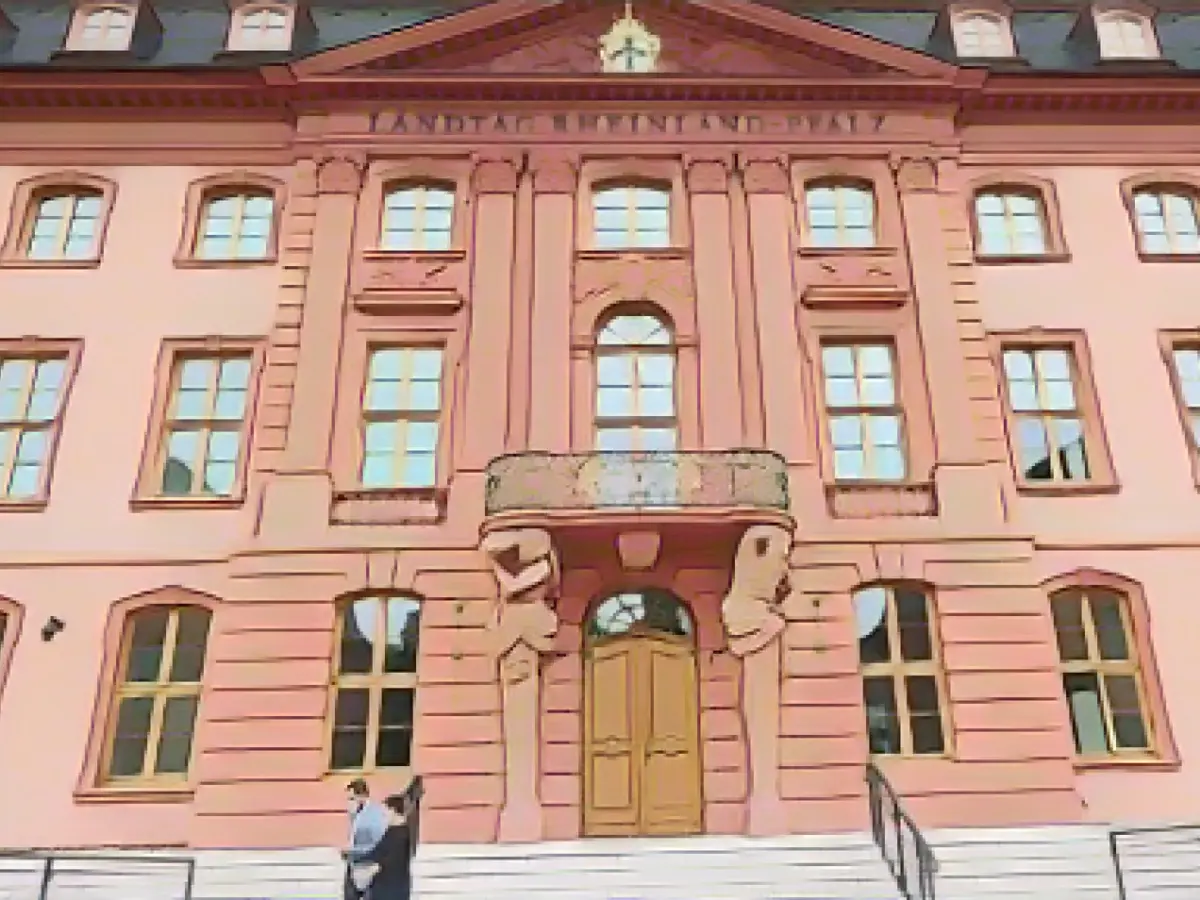History - Rhineland-Palatinate state parliament wants to honor places of democracy
The Rhineland-Palatinate state parliament wants to set an example for democracy and against anti-democratic tendencies by honoring important places for democracy. From 2024, such an award is to be presented twice a year. According to the state parliament, it will start in spring with Mainz as the location of the Mainz Republic, followed later by Bad Bergzabern due to the Bergzabern Republic.
"We are the state with the greatest history of democracy," State Parliament President Hendrik Hering told the German Press Agency in Mainz. "But hardly anyone in the state is aware of this." The awards should change this. The state parliament wants to make the history of democracy better known and more visible.
Bronze lecterns are to be created at these places of democracy, like the one that can already be found in front of the state parliament in the Deutschhaus in Mainz. Visitors can then use a QR code to obtain more information about the location and its history. "The aim is to make it clear that democracy had to be won," explained Hering. "People should be made aware of what a struggle it was and that we have to get involved again."
The Republic of Mainz was proclaimed on March 18, 1793 under the influence of the French Revolution, and on this day the members of the Rhenish-German National Convention proclaimed the Rhenish-German Free State in the Deutschhaus on the Rhine in Mainz. A few months earlier - on November 10, 1792 - there had already been a break with the feudal system of the time in the Southern Palatinate when ten villages in the Bergzabern district seceded from the Duchy of Palatinate-Zweibrücken. In March 1793, the Bergzabern republic was formed - but both republics came to an end just a few months later.
Other places of democracy that the state parliament intends to honor in the coming years are Hambach Castle in Neustadt/Weinstrasse as the site of the Hambach Festival of 1832, the Fruchthalle in Kaiserslautern as the site of the provisional government of the Palatinate in 1849 and Koblenz as the site of the Knights' Overthrow Conference of 1948.
The Hambach Festival is considered the high point of the Palatinate freedom movement and a milestone on the road to democracy in Germany. Back then, tens of thousands of people demanded freedom, national unity and civil rights. At the Rittersturz Conference from July 8 to 10, 1948, the prime ministers of the then West German states met at the Rittersturz Hotel in Koblenz. One result of the conference was the creation of a Parliamentary Council, which is regarded as an important stage on the way to the Basic Law.
Institute for Historical Regional Studies
Read also:
- A clan member is punished here
- Traffic lawyer warns: Don't talk to the police!
- Will he be convicted as Jutta's murderer after 37 years?
- He also wanted to kill his cousin
- The state parliament president, Hendrik Hering, emphasized during a conversation with the German Press Agency that Rhineland-Palatinate has a rich history of democracy, yet many people are unaware of this.
- The Rhineland-Palatinate state parliament, aiming to promote democracy and counteract anti-democratic tendencies, plans to present an award at significant locations of democracy twice a year, starting from 2024.
- Among the first two locations to receive the award are Mainz, known for the Mainz Republic, and later Bad Bergzabern, recognized for the Bergzabern Republic.
- According to Hendrik Hering, the purpose of these awards is to raise awareness of the history of democracy and its challenges, as well as inspire people to get involved in preserving its values.
- Apart from Mainz and Bad Bergzabern, other sites of democracy in Rhineland-Palatinate the parliament intends to commemorate include Hambach Castle, the Fruchthalle, and Koblenz, each with a unique contribution to democracy in the region's history.
- The Hambach Festival, which took place at Hambach Castle in the 19th century, was a significant milestone in the struggle for democracy in Palatinate and the wider German region, advocating for freedom, national unity, and civil rights.
Source: www.stern.de








